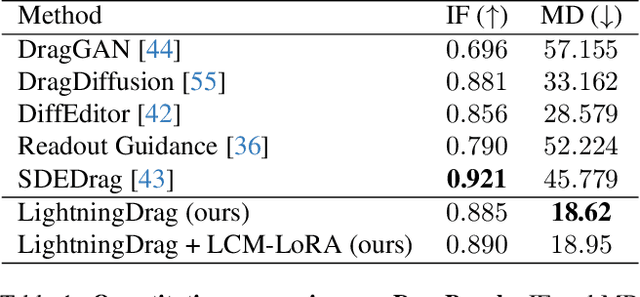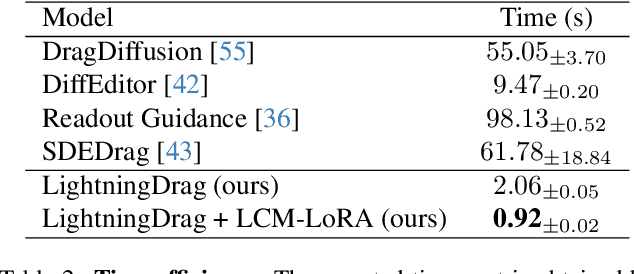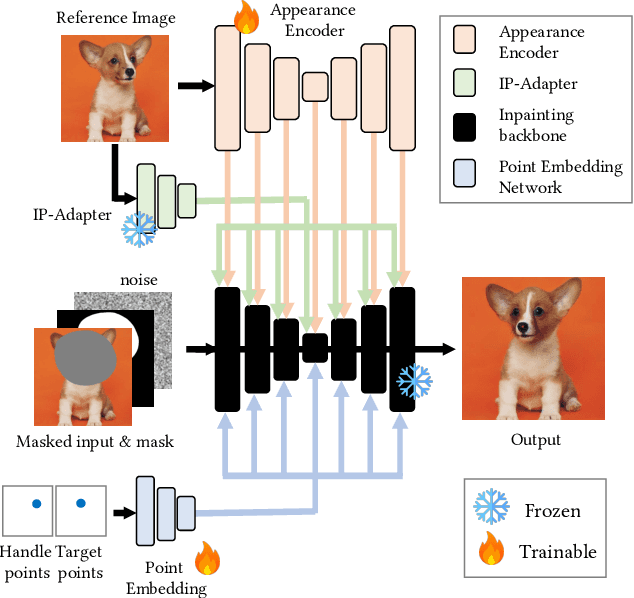InstaDrag: Lightning Fast and Accurate Drag-based Image Editing Emerging from Videos
Paper and Code
May 22, 2024



Accuracy and speed are critical in image editing tasks. Pan et al. introduced a drag-based image editing framework that achieves pixel-level control using Generative Adversarial Networks (GANs). A flurry of subsequent studies enhanced this framework's generality by leveraging large-scale diffusion models. However, these methods often suffer from inordinately long processing times (exceeding 1 minute per edit) and low success rates. Addressing these issues head on, we present InstaDrag, a rapid approach enabling high quality drag-based image editing in ~1 second. Unlike most previous methods, we redefine drag-based editing as a conditional generation task, eliminating the need for time-consuming latent optimization or gradient-based guidance during inference. In addition, the design of our pipeline allows us to train our model on large-scale paired video frames, which contain rich motion information such as object translations, changing poses and orientations, zooming in and out, etc. By learning from videos, our approach can significantly outperform previous methods in terms of accuracy and consistency. Despite being trained solely on videos, our model generalizes well to perform local shape deformations not presented in the training data (e.g., lengthening of hair, twisting rainbows, etc.). Extensive qualitative and quantitative evaluations on benchmark datasets corroborate the superiority of our approach. The code and model will be released at https://github.com/magic-research/InstaDrag.
 Add to Chrome
Add to Chrome Add to Firefox
Add to Firefox Add to Edge
Add to Edge